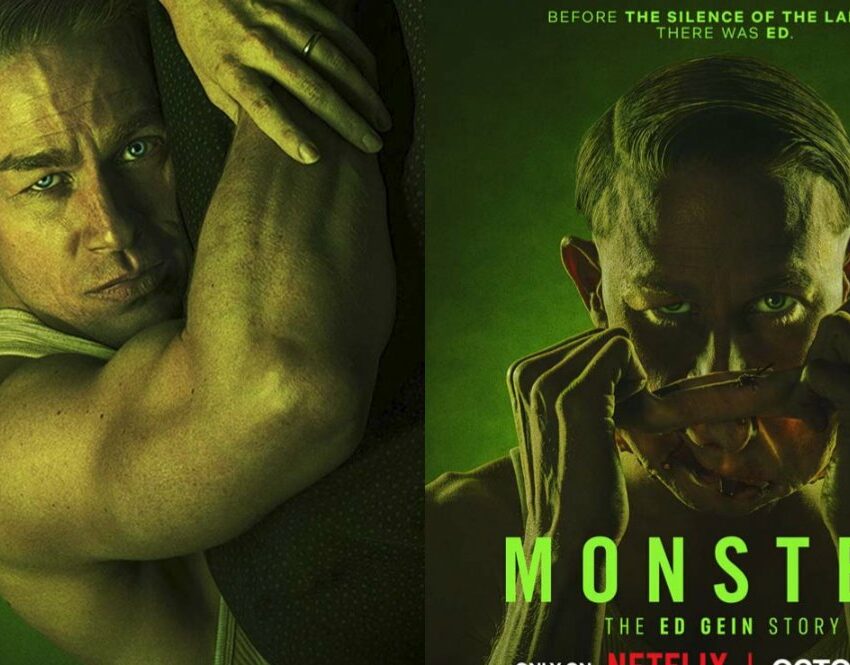
Netflix’s Monster Series Turns True Crime Into Dark Art
Ryan Murphy has once again found a formula that captivates audiences. After tackling Jeffrey Dahmer in Monster: Dahmer and the Menéndez brothers in season two, Netflix’s latest offering, Monster: The Ed Gein Story, pushes the envelope even further. It’s a chilling, unnerving look at one of America’s most notorious killers, yet it’s hard to look away.
For South African viewers accustomed to sensational news stories, the series reads like a hyper-stylized blend of psychological study and macabre theatre. Murphy, known for the campy horror of American Horror Story, leans into the reality-based terror of human depravity here.
The Lonely, Twisted Mind of Ed Gein
Ed Gein’s life was marked by isolation, abuse, and mental illness. His mother, Augusta (played by Laurie Metcalf), was both verbally and physically cruel, shaping a man who was awkward, shy, and deeply troubled. Charlie Hunnam’s portrayal captures Gein’s quiet, almost soft-spoken exterior, which masks a severely fractured psyche, likely schizophrenia or split personality disorder.
Gein’s early fascination with his mother’s clothing, particularly her underwear, evolves into a troubling sexual obsession, complicated by Augusta’s insistence that he could never be with a woman. These formative experiences set the stage for the horrors that would later emerge.
The Spark That Ignited Madness
The series doesn’t shy away from depicting the pivotal moment that changed Gein’s life. In a tragic and shocking scene, he kills his brother in the family barn, initially believing it to be a joke. When he realizes the death is real, he stages it as a fire accident, fooling authorities with alarming ease.
From there, Gein’s descent accelerates. Caring for his ailing mother after her stroke exposes him further to morbid fascinations, intertwining caretaking with obsession. Her eventual death seems to trigger the first major split in his personality, leading him to grave-digging, impersonation, and unspeakable acts that would inspire Hollywood horror for decades.
Ed Gein’s Unsettling Legacy
Gein’s crimes weren’t just sensational, they became a blueprint for cinematic terror. Hitchcock’s Psycho, Texas Chainsaw Massacre, and The Silence of the Lambs all bear his dark imprint. Yet Murphy’s series doesn’t just focus on the acts; it questions the nature of evil itself. Is it the monster, or the monstrous deeds?
Later episodes humanize Gein, portraying his post-capture life under institutional care. The once-violent man becomes a quiet, almost harmless figure, a chilling reminder that even the most depraved lives can contain human complexity.
Social and Cultural Ripples
Fans on X and Instagram have been debating the portrayal, with many applauding Murphy’s ability to balance horror with psychological depth. The series has sparked conversations about mental illness, trauma, and the environment’s role in shaping dangerous behaviors, a topic increasingly relevant in South Africa, where public discourse on mental health is growing but still fraught with stigma.
Murphy’s Monster series challenges viewers to confront discomforting questions: How much of Gein’s evil was born of nature versus nurture? Can empathy exist for someone capable of such acts? And, ultimately, what defines true evil?
Monster: The Ed Gein Story is not easy viewing, but it’s compelling in a way that blends horror, psychology, and human tragedy. For fans of true crime and anyone intrigued by the dark corridors of the human mind, it’s a must-watch and a stark reminder of the complexities behind the monsters we often think we understand.
Source: IOL
Featured Image: X{@WhiteDudesWs}




